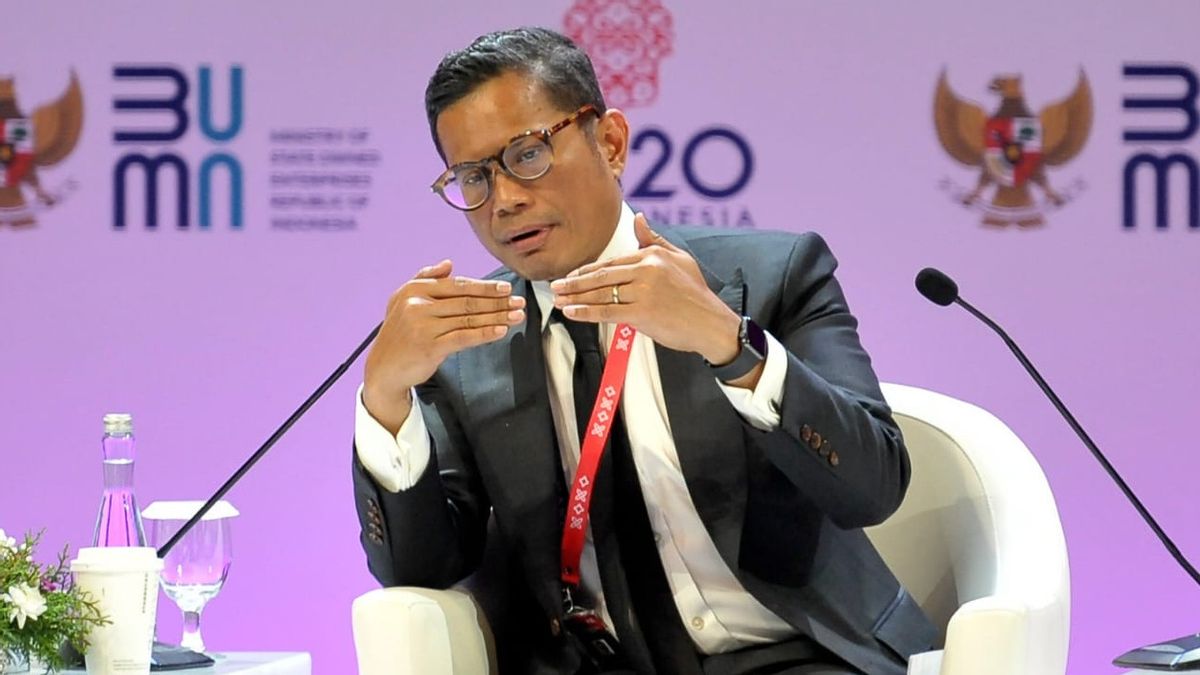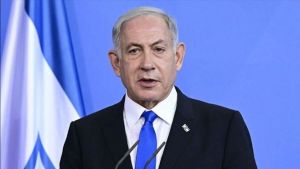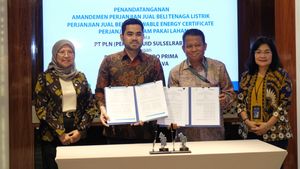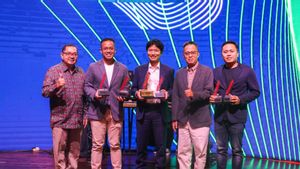JAKARTA - The Ministry of SOEs encourages the decarbonization process as a way to carry out the energy transition. The decarbonization process can be used as a big leap for SOEs to realize energy resilience and independence. Decarbonization is a process of replacing fossil fuels with more environmentally friendly fuels.
Deputy Minister of SOEs I Pahala Nugraha Mansury said, there are many ways that SOEs can do decarbonization, one of which is synergizing with a number of parties.
"Energy transition is something that cannot be avoided because Indonesia has set a target of achieving net zero emissions by 2060 and reducing emissions by 32 percent by 2030. So I think how SOEs develop portfolios to reduce carbon emissions, either individually or in synergy with the SOE ecosystem," said Pahala when speaking at the SOE International Conference event at the panel III discussion session with the theme: Energy Transition and Green Development for Sustainable Growth.
The Ministry of SOEs held SOE International Conference: Driving Sustainable and Inclusive Growth on 17-18 October 2022 in Nusa Dua, Bali. This event is part of Trade, Investment, and Industry Working Group (TIIWG) Road to G20. SOE International Conference was held as a government commitment to support the implementation of Environment, Social, and Governance (ESG) and Sustainable Development Goals (SDGs) aspects, particularly in the health sector, financial inclusion, digital transformation, and energy transition.
Previously, in order to accelerate the energy transition, SOE Minister Erick Thohir required state-owned company employees to use electric vehicles as official vehicles.
According to Pahala, the soaring world oil prices are one of the reasons not to delay the energy transition. SOEs must start developing clean energy sources rather than building fossil power plants.
President of Schlumberger Asia, Amy Chua revealed, the energy transition cannot be done alone but must invite many parties to collaborate.
"Decarbonization will be a big agenda in the next two decades. This cannot be done alone, collaboration, cooperation and partnership between private business entities and the government is crucial,” explains Amy.
Amy added, there must be a paradigm shift in carrying out the energy transition as well as policies from the government that pave the way for renewable energy to replace fossil energy.
Energy Division Department Director of the Asian Development Bank Toru Kubo said ADB had launched Energy Transition Mechanism (ETM) to help reduce the dependence of a number of countries on fossil energy and switch to clean energy.
"Financing is a crucial issue in the transition from fossil energy to new and renewable energy. Therefore, there must be blended financing which allows creditors to receive funds for programs to reduce greenhouse gas emissions, but on the other hand, good carbon prices must also be set," said Kubo.
ADB has collaborated with Indonesia, the Philippines and Vietnam in carrying out energy transitions. In addition, ADB is also working with regional and global financial institutions to form an Asset Regination Platform to increase bankable investments in the climate change sector.
APAC Head of Energy and Environment Policy for Amazon Web Services (AWS) in Asia Pacific and Japan, Ken Haig explained, Amazon is committed to building a sustainable business. Therefore, in 2019 Amazon founded The Climate Pledge which is a form of commitment to achieving net zero emissions in the business in 2040.
"As part of The Climate Pledge, we also aim to run all of our operations using 100 percent renewable energy by 2025. We will be happy to help Indonesia to make renewable energy prices more affordable," explained Ken.
The English, Chinese, Japanese, Arabic, and French versions are automatically generated by the AI. So there may still be inaccuracies in translating, please always see Indonesian as our main language. (system supported by DigitalSiber.id)










